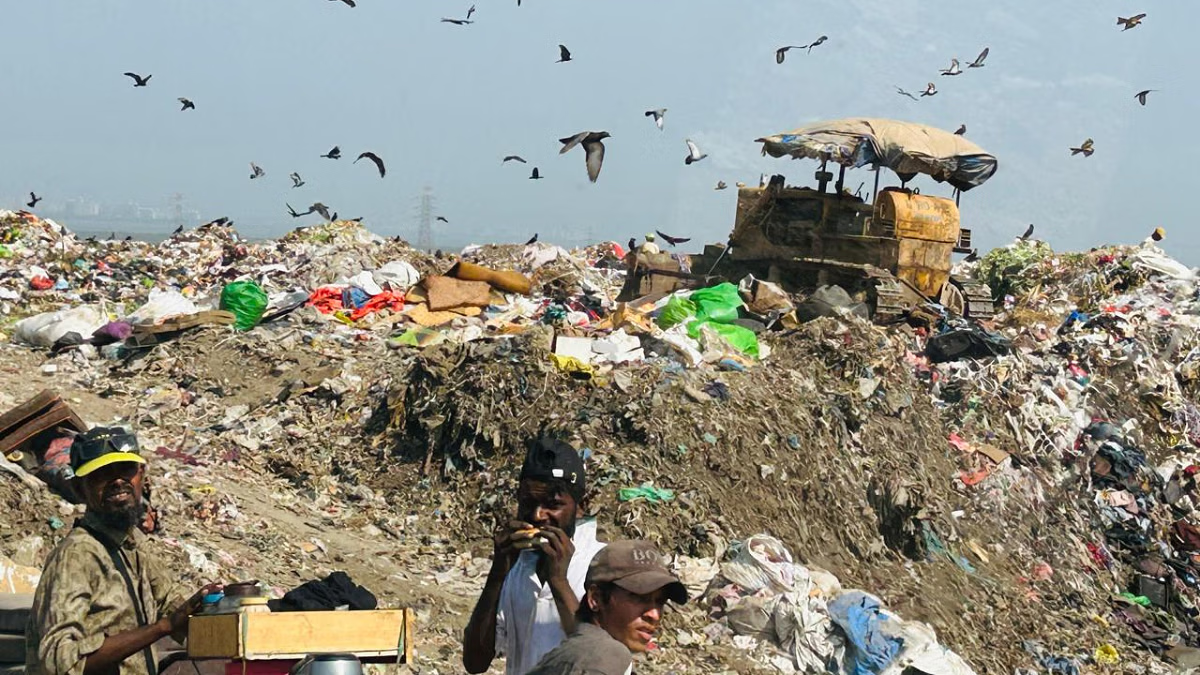Mumbai’s ambitious plan to clean up the Deonar landfill — one of the oldest and most toxic waste sites in the country — has hit a fresh snag, as the Brihanmumbai Municipal Corporation (BMC) has extended its tender submission deadline once again. The ₹2,368 crore bioremediation contract, first floated in May, has failed to attract a single formal bid so far, prompting officials to push the deadline to 1 July.
The tender aims to scientifically remediate over 1.85 crore metric tonnes of legacy waste spread across 271 acres of the Deonar site, through environmentally safe and sustainable methods. However, despite expressions of interest from 21 waste management companies from across India, including those from Maharashtra, Tamil Nadu, Telangana, and Madhya Pradesh, no actual bids have been filed.
BMC officials attribute the hesitation to a mix of logistical concerns and challenging timelines. The 36-month contract period, they argue, is significantly constrained by Mumbai’s intense monsoon season, which typically eats into four months of operational capacity each year. Effectively, this leaves contractors with just about two working years to complete the massive project — a target many firms reportedly view as overambitious.Senior officials confirmed that technical queries from potential bidders continue to pour in, with several firms questioning the feasibility of completing such an enormous clean-up in a weather-dependent urban environment. Some have also flagged issues around site access, waste profiling, and leachate treatment — all crucial aspects for a scientifically sound bioremediation process.
The stakes for this project, however, go well beyond environmental clean-up. The Deonar dumpsite is strategically linked to the Dharavi Redevelopment Project (DRP) — Mumbai’s most ambitious slum rehabilitation initiative. The Maharashtra government has earmarked 124 acres from Deonar for housing infrastructure under the DRP. Unless the site is remediated in time, the larger urban renewal vision for thousands of families in Dharavi could be delayed.Navbharat Mega Developers Private Limited, a special purpose vehicle driving the DRP, is a joint venture between a private infrastructure major (holding 80%) and the state-run Slum Rehabilitation Authority (holding 20%). For the project to move ahead, land cleared of toxic waste and deemed environmentally safe is essential.
Officials within BMC clarified that the re-extension is necessary to ensure a fair and competitive bidding process. They also indicated that if sufficient participation is not achieved by 1 July, further extensions may be considered to allow greater technical clarity for bidders and to attract robust competition.
As cities like Mumbai face a growing urban footprint and land scarcity, the scientific reclamation of landfill sites such as Deonar is not just a waste management challenge — it is a test of the city’s capacity to align ecological responsibility with inclusive urban development. The eventual success of this project could serve as a blueprint for other Indian cities grappling with legacy waste and rising housing needs in environmentally sensitive zones.
Also Read : Mumbai Airport Secures USD 750 Million Investment
Mumbai Reopens Tender for Dumpsite Project


